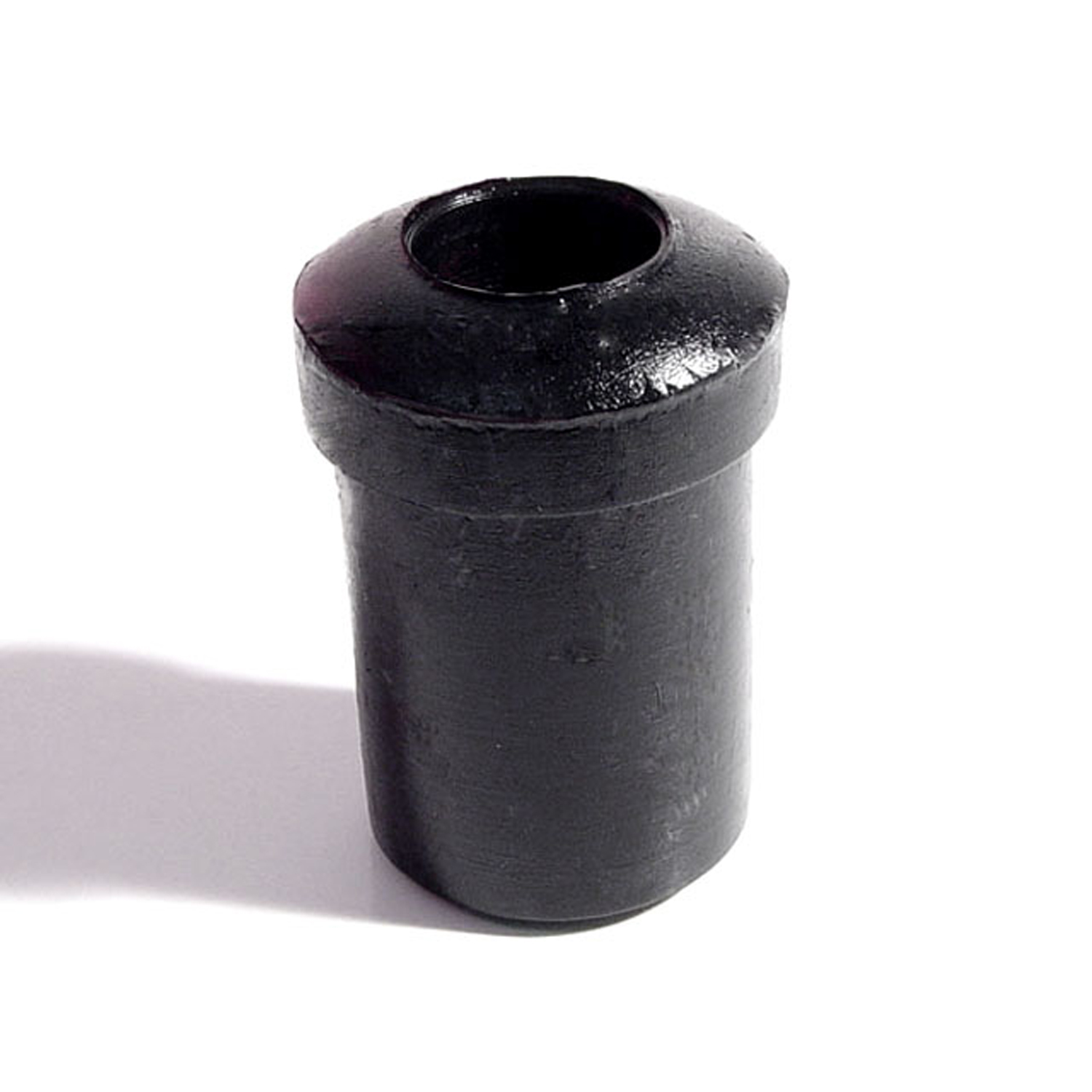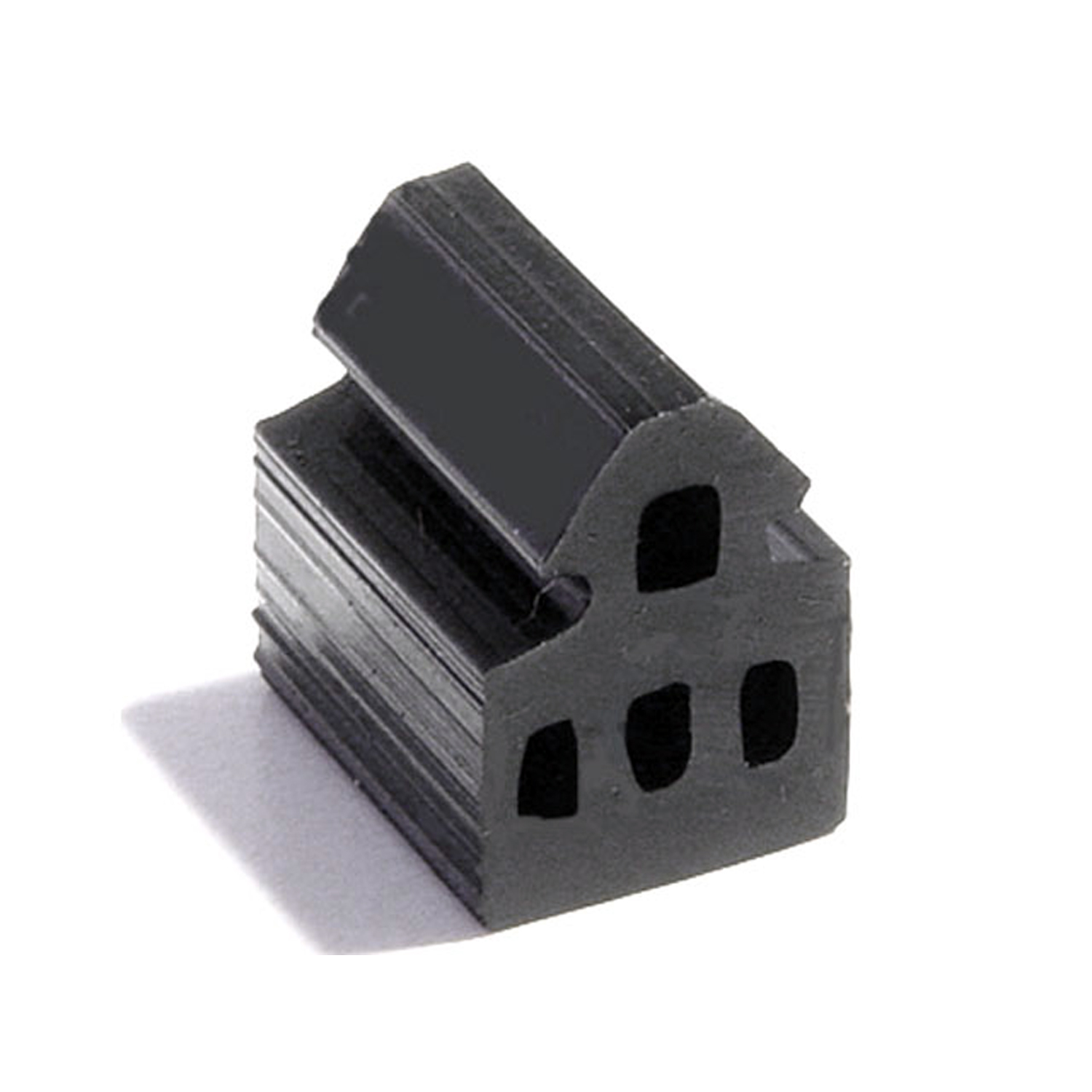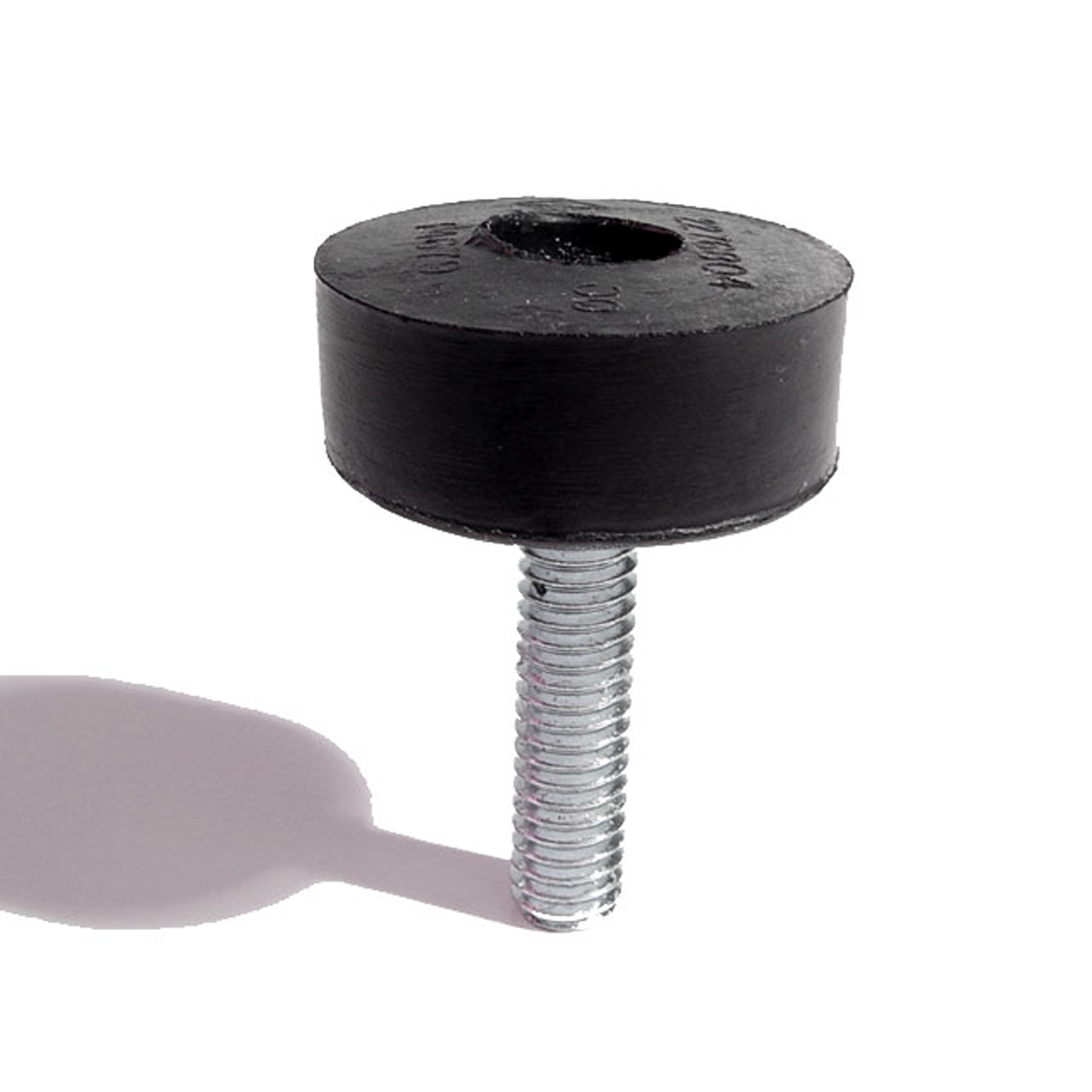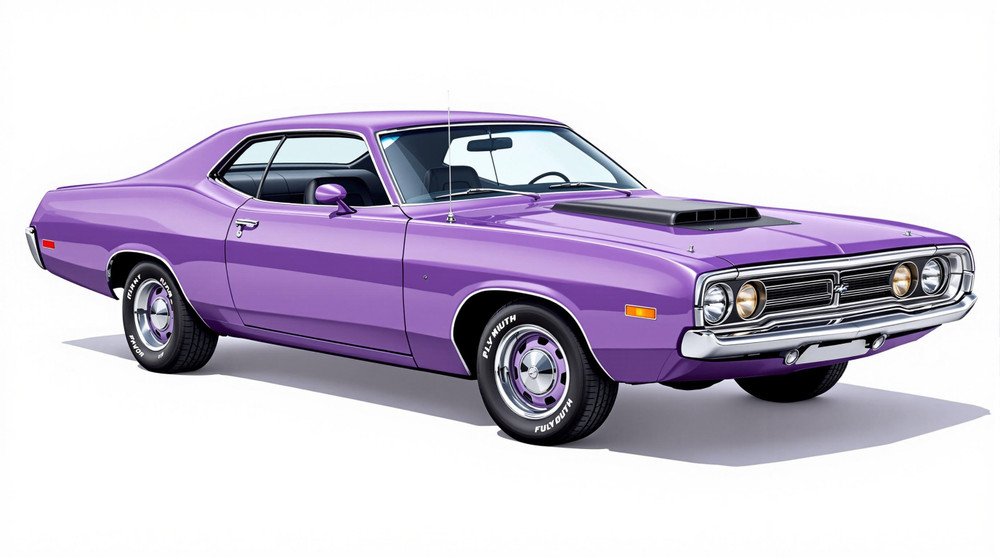Image of 1973 Plymouth Fury, Note: These illustrations use artistic license and may differ from actual historical models.
Performance Metrics
Fundamental Metrics
Emotional Appeal
MMP Rating
| Engine Specifications | |
|---|---|
| Engine: | 318 cu in (5.2 L) V8, 360 cu in (5.9 L) V8, 400 cu in (6.6 L) V8, 440 cu in (7.2 L) V8 |
| Displacement: | 318-440 cu in |
| Horsepower: | 150-280 hp |
| Torque: | 230-480 lb-ft |
| Compression Ratio: | 8.5:1 - 10.3:1 |
| Ignition System: | Electronic Ignition |
| Cooling System: | Liquid cooled |
| Performance Specifications | |
| 0-60 Time: | Estimated 8-10 seconds |
| 1/4 Mile Time: | Estimated 16-18 seconds |
| Top Speed: | 120 mph |
| Transmission and Drive | |
| Drive Type: | Rear-wheel drive |
| Transmission Type: | 3-speed TorqueFlite automatic |
| Fuel and Efficiency | |
| Fuel System Type: | Carburetor |
| MPG: | Estimated 10-15 mpg |
| Dimensions and Brakes | |
| Brakes: | Front disc, rear drum |
| Wheelbase: | 120 inches |
| Weight: | 3,600-4,000 lbs |
Note: Specifications for classic cars are given to the best of our ability, considering the limited and variant data available.
1973 Plymouth Fury: A Testament to American Automotive Heritage
The 1973 Plymouth Fury stands as a bold symbol of the American automotive industry's resilience during a time of change. Born from the storied assembly lines of Plymouth, a division of the Chrysler Corporation, this full-size car was crafted during an era when manufacturers were grappling with the onset of new emissions regulations and the aftermath of the muscle car era. The Fury's robust presence on the road is not just a nod to its engineering but also a testament to its cultural impact, having served as a reliable family car, a formidable law enforcement vehicle, and even a Hollywood icon.
Design and Innovation
The exterior styling of the 1973 Plymouth Fury was a harmonious blend of muscular lines and refined curves that exuded confidence. Its long hood and spacious trunk were hallmarks of its design, while the wide stance and prominent grille commanded attention. Inside, passengers were greeted with an interior that prioritized comfort and space, featuring plush seating and high-quality materials that reflected Plymouth's attention to detail. Technologically, it boasted features like electronic ignition and improved safety equipment, which were advanced for its time. The Fury was available in a palette of colors that ranged from subdued earth tones to vibrant hues, with Spinnaker White and Formal Black being popular choices. Body styles varied from two-door coupes to four-door sedans and station wagons, with the iconic two-door hardtop coupe often stealing the spotlight.
Historical Significance
The 1973 Plymouth Fury made its mark by offering a blend of luxury, size, and power that was becoming increasingly rare in an industry facing downsizing pressures. It stood out for its refusal to compromise on space and comfort, influencing future designs that would attempt to balance efficiency with these traditional values. The Fury's legacy is also tied to its role as a fleet vehicle for police departments across America, cementing its image as a robust and reliable workhorse.
Performance and Handling
Underneath the hood, the Fury housed engines ranging from the dependable 318 cubic inch V8 to the formidable 440 cubic inch V8 powerhouse. Performance figures varied with engine options, but top speeds could reach well over 100 mph with acceleration from 0-60 mph achievable in under 10 seconds for the more powerful variants. Handling was typical for large cars of the era; it floated over bumps but required attention on windy roads. Drivers often reveled in the throaty rumble of the V8 engine—a true mechanical symphony—and enjoyed a ride quality that prioritized comfort over agility.
Ownership Experience
The 1973 Plymouth Fury found its place as both a daily driver for families and an authoritative presence in police fleets. It was appreciated for its straightforward mechanical layout which made maintenance relatively easy for the average owner. However, like many vehicles of its time, it faced challenges with rust and parts availability as it aged.
Fun Facts
The Fury line has had its share of limelight with appearances in films and television shows, often playing the part of police cruisers or quintessential American cars. While not known for breaking speed records, it did set standards for full-size durability in everyday use. Criticisms often centered around its fuel consumption—a common trait among V8-powered vehicles of that period.
Collector's Information
Today, collectors find value in the 1973 Plymouth Fury for its nostalgic appeal and representation of an era. While production numbers were substantial—making rarity less of an issue—finding one in excellent condition can be challenging. Prices can vary widely based on condition and originality but expect well-maintained examples to fetch anywhere from $10,000 to $20,000 or more depending on specific history or provenance.
Conclusion
The 1973 Plymouth Fury remains an emblematic figure within automotive circles—a reminder of America's relentless spirit during times of transition. Its design, performance, and versatility have left an indelible mark on car culture. Whether you're behind the wheel or admiring from afar, this classic American machine continues to captivate enthusiasts around the world.
1973 Plymouth Fury Catalog of Parts
 1973 Plymouth Fury Spring and Shackle Bushing. 1" bottom O.D-BN 20Spring and Shackle Bushing. 1" bottom O.D. X 1-5/8" high, with 9/16" I.D. Each
1973 Plymouth Fury Spring and Shackle Bushing. 1" bottom O.D-BN 20Spring and Shackle Bushing. 1" bottom O.D. X 1-5/8" high, with 9/16" I.D. Each 1973 Plymouth Fury Door Bumper. 5/8" wide, made from extrusion. Each-DB 52Door Bumper. 5/8" wide, made from extrusion. Each
1973 Plymouth Fury Door Bumper. 5/8" wide, made from extrusion. Each-DB 52Door Bumper. 5/8" wide, made from extrusion. Each 1973 Plymouth Fury Hood Adjustment Bolt and Bumper-HA 8Hood Adjustment Bolt and Bumper. 1-3/16" diameter rubber head. 5/16" thick X 18 threads/inch X 1-1/4" long bolt. Each
1973 Plymouth Fury Hood Adjustment Bolt and Bumper-HA 8Hood Adjustment Bolt and Bumper. 1-3/16" diameter rubber head. 5/16" thick X 18 threads/inch X 1-1/4" long bolt. Each 1973 Plymouth Fury Nylon Lock Cylinder Gasket. 1-1/4" O.D., 7/8" I.D. Each-UM 2700-104Nylon Lock Cylinder Gasket. 1-1/4" O.D., 7/8" I.D. Each
1973 Plymouth Fury Nylon Lock Cylinder Gasket. 1-1/4" O.D., 7/8" I.D. Each-UM 2700-104Nylon Lock Cylinder Gasket. 1-1/4" O.D., 7/8" I.D. EachWhy Choose Metro?
For over 100 years, Metro Moulded Parts has been the pinnacle of quality in classic car restoration parts. Our commitment to precision and authenticity in every component ensures a perfect fit and an OEM-level appearance.
- Expert Craftsmanship & Quality: Each part is a testament to our dedication to reliability and perfection, crafted from original designs and thoroughly tested.
- Advanced Technology: We use cutting-edge techniques to create flawless, long-lasting parts that surpass others in performance.
- SuperSoft Sponge – The Ultimate Door Seal: Not only are our door seals 30% softer than competitors', but they're also guaranteed to never leak. They effectively reduce wind and road noise, enhancing your classic car's comfort and driving experience.
- Proudly American: Our parts are a product of American craftsmanship, made in the USA with a spirit of excellence and heritage.
- Unrivaled Warranty: We back our products with a 30-year industry-leading warranty, a testament to our confidence in their quality.
Join us in preserving the legacy of classic cars with parts that are crafted for perfection, not just made.

